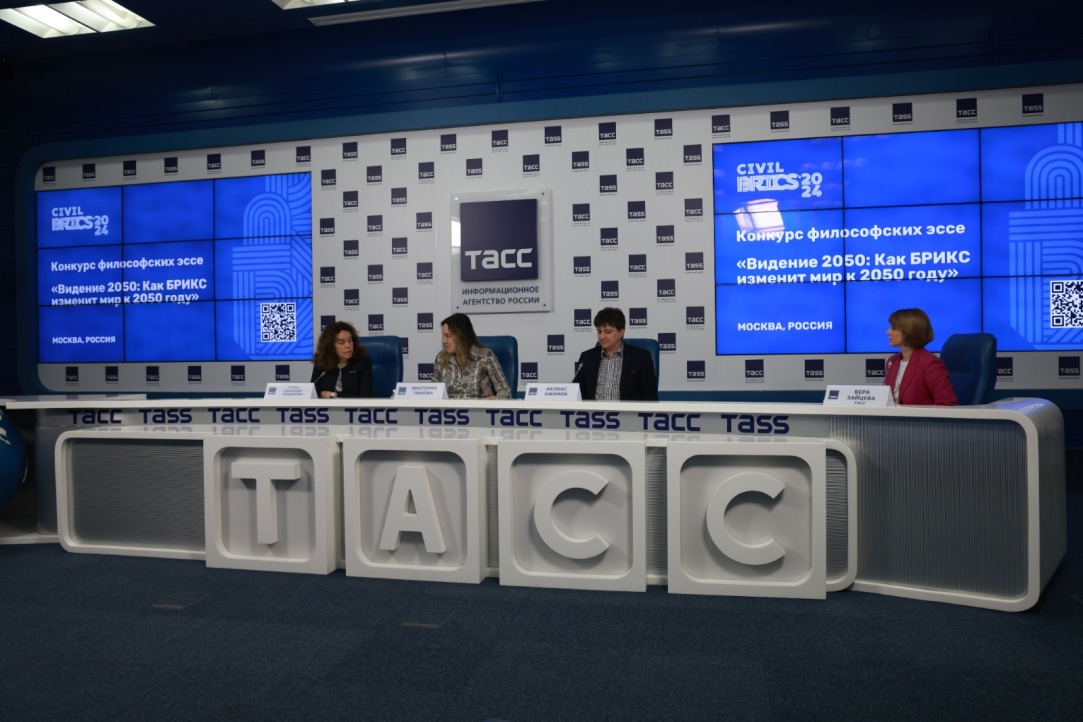Viсtoria Panova: BRICS is primarily an association of countries that want a better future, but not at the expense of someone else
On April 2, at a press conference dedicated to the launch of the philosophical essay contest “Vision 2050 – BRICS People 2050 – How BRICS Would Change the World by 2050”, Viсtoria Panova, Vice Rector at HSE University, Head of the BRICS Expert Council – Russia, co–chairman of the BRICS Civil Society Forum, and Elena Topoleva-Soldunova, Co-Chair of the BRICS Civil Forum, spoke about the history of BRICS Civil Track, about the dialogue between NGOs of the countries participating in the association with the state and, in general, about the place and role of NGOs within the track.

The priority task of BRICS Civic Track is the active involvement of the participating countries in the development of a consolidated position on ensuring equal, sustainable and equitable development of society. "Civil society institutions exist and work in all BRICS countries. There is an active dialogue between them and the authorities all the time. We see great importance in this interaction. We would like to ensure that this dialogue takes place not only within each of the countries, but also between the BRICS countries. And, of course, we face a difficult and ambitious task – to try to consolidate our views on the agenda of our common development of civil society and see what we can do together and what message to convey to the leaders of the BRICS countries," said Elena Topoleva-Soldunova, co–chair of the BRICS Civil Society Forum.
During the press conference, experts noted that the number of informal initiatives of academic, expert and civil society communities that interact with government institutions is increasing. Thus, the BRICS Civic Track currently includes groups whose work is devoted to culture, sports and tourism, ecology and energy transition, values and rights of peoples, public health and human well-being, digital information security, sovereign economic and financial development, and sustainable development goals.
"Each of the groups forms its own part of the proposals, in which it has expertise, real experience and thus the ability to make a real contribution. Through all the groups and through the whole process, we put strong emphasis on the fact that each country works in the interests of its own people, and not in the interests of transnational corporations, which is an important factor," said Viсtoria Panova, Head of the BRICS Expert Council, co-chairman of the BRICS Civil Society Forum.
The support of cultural ties between BRICS members is more essential than ever. Active work is carried out, among other things, within the framework of socio-cultural exchange. There are even NGOs in Russia that specialize in cultural exchanges between the BRICS countries. One of them is the regional public organization “BRICS. The World of Traditions”, which is engaged in the creation of the "Anthem of the BRICS Peoples" and is currently accepting applications for participation in the competition.
Viсtoria Panova drew attention to the fact that BRICS is primarily an association of countries, peoples, like-minded people "who want a better future, but not at the expense of someone." "Each of us will be ready to do our best so that you and I and our children see a stable future where they can live and develop in accordance with their rights based on the values that are important to them," Viсtoria Panova summed up.
